EXPLORE
25 Green Vegetables That You Should Be Eating
Published
1 month agoon

Shutterstock
Green vegetables are nature’s nutritional powerhouses, offering a wide range of vitamins, minerals, and antioxidants essential for good health. From leafy greens like spinach and kale to crunchy options like celery and cucumbers, these vegetables are as versatile as they are beneficial. Incorporating them into your daily diet can improve digestion, boost immunity, and support overall wellness. Whether you enjoy them raw, steamed, or sautéed, green vegetables are a delicious way to enhance any meal. Explore this guide to discover 25 green vegetables you should be eating and how they can transform your health.
Spinach

Shutterstock
Spinach is a powerhouse of nutrients, offering high levels of iron, calcium, and vitamins A and C. It is particularly beneficial for promoting healthy blood and strong bones. Its mild flavor makes it versatile for use in smoothies, salads, and cooked dishes. Whether raw or sautéed, spinach is a delicious way to boost your nutrient intake.
Kale
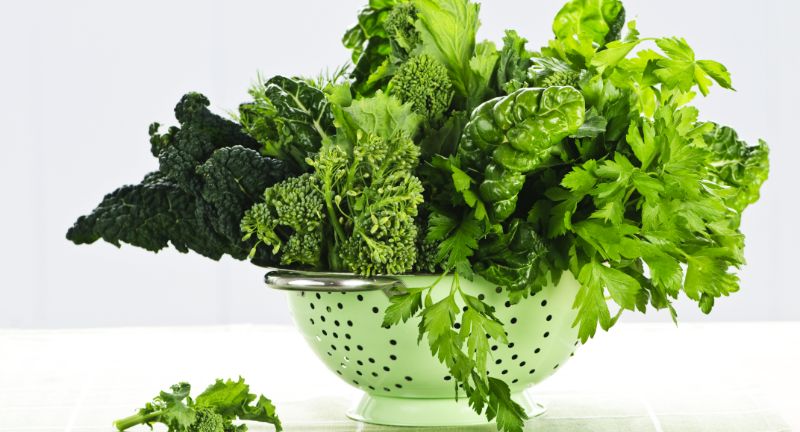
Shutterstock
Kale is a nutrient-dense leafy green packed with vitamins A, C, and K. Its slightly bitter taste pairs well with sweet and tangy dressings in salads. Kale chips are a popular snack option, providing a crunchy, healthy alternative to potato chips. Incorporating kale into your diet supports immune function and bone health.
Swiss Chard
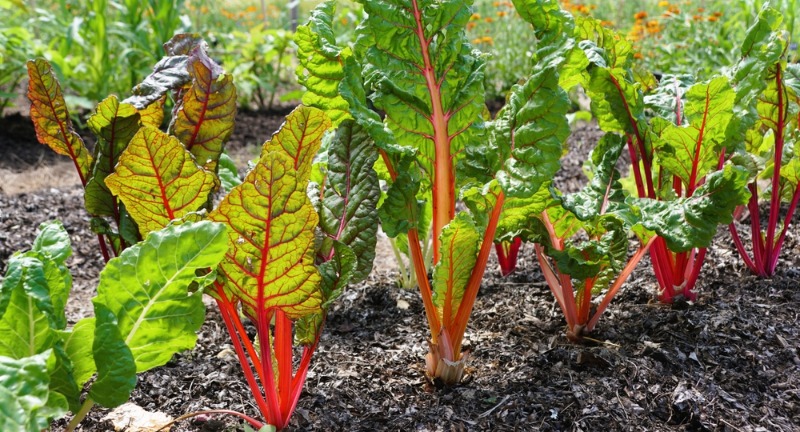
Shutterstock
Swiss chard offers a burst of color and nutrients to your plate, with its vibrant stems and leafy greens. Rich in magnesium and potassium, it helps maintain healthy blood pressure and muscle function. The slightly earthy flavor of Swiss chard makes it a great addition to soups and sautéed dishes. It’s a versatile green that can enhance both the taste and nutritional value of your meals.
Romaine Lettuce

Shutterstock
Romaine lettuce is a crisp, hydrating vegetable that makes a perfect base for salads and wraps. It is rich in vitamin K and folate, supporting bone health and red blood cell production. Its sturdy leaves hold up well to various toppings, making it a favorite for Caesar salads. Romaine is also low in calories, making it a great choice for weight management.
Arugula
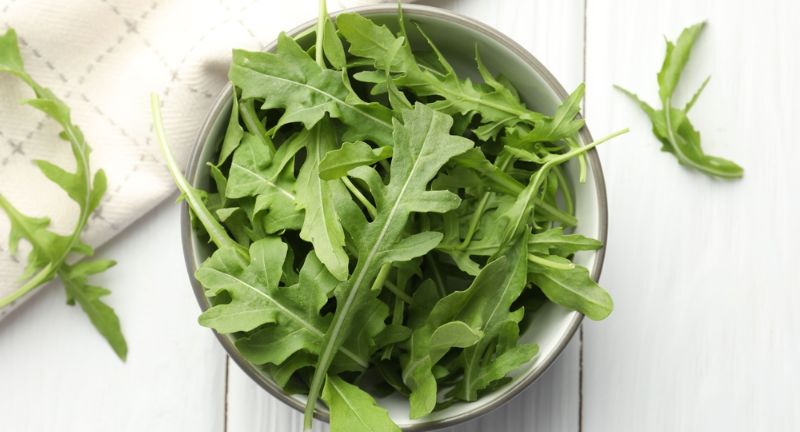
Shutterstock
Arugula, with its peppery flavor, adds a spicy kick to salads, pizzas, and sandwiches. This leafy green is packed with calcium and antioxidants, which support strong bones and combat free radicals. Arugula also contains compounds that may aid digestion and reduce inflammation. Its unique taste and health benefits make it a delightful addition to many dishes.
Collard Greens

Shutterstock
Collard greens are a traditional staple in Southern cuisine, known for their hearty texture and earthy taste. They are rich in fiber and vitamin C, aiding digestion and boosting immune health. Collards are often simmered with seasonings, making them tender and flavorful. These greens are a delicious and nutritious way to add variety to your meals.
Mustard Greens
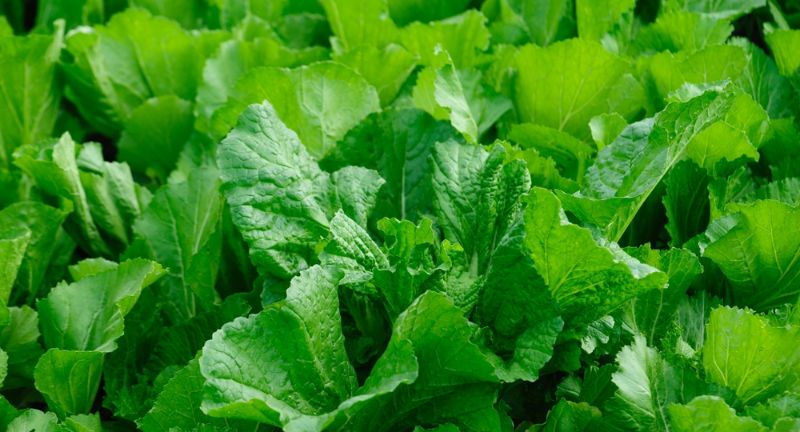
Shutterstock
Mustard greens, known for their slightly spicy flavor, are a versatile and nutritious addition to any diet. They are high in vitamins A, C, and K, contributing to eye health, immunity, and blood clotting. These greens also contain anti-inflammatory properties, supporting overall health. Whether sautéed, steamed, or added to soups, mustard greens are a flavorful and healthy choice.
Watercress

Shutterstock
Watercress is a delicate green with a slightly peppery flavor that elevates salads and sandwiches. It’s packed with vitamin C, calcium, and cancer-fighting compounds. Watercress is also known for its hydrating properties and ability to support skin health. Its small, tender leaves make it a refreshing and nutritious addition to your meals.
Broccoli
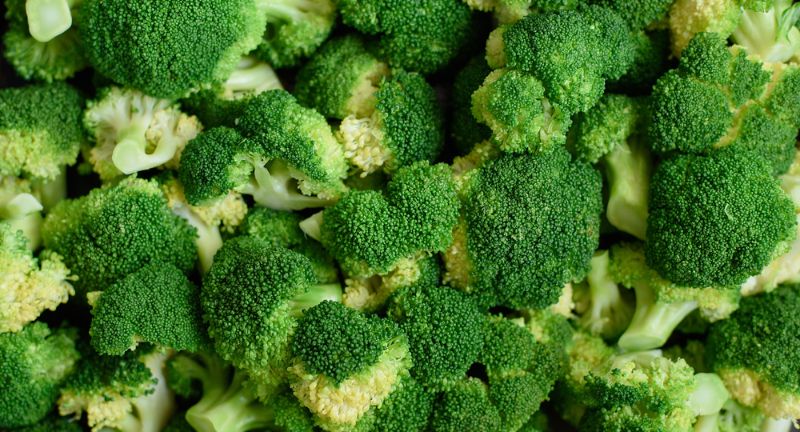
Shutterstock
Broccoli is a versatile vegetable loaded with fiber, vitamin C, and folate. These nutrients support gut health, strengthen the immune system, and promote healthy cell growth. Broccoli can be steamed, roasted, or added to stir-fries for a nutritious meal. Regular consumption of broccoli helps improve overall health and reduce the risk of chronic diseases.
Broccoli Rabe
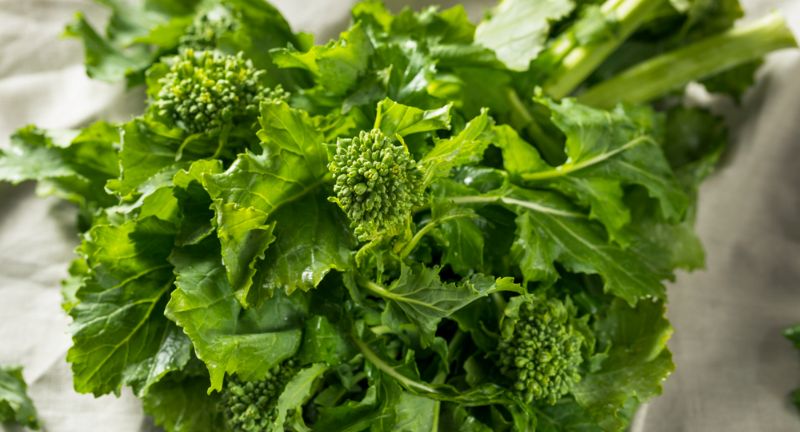
Shutterstock
Broccoli rabe is a bitter green rich in calcium and vitamin A, supporting strong bones and healthy vision. Its slightly sharp taste pairs well with garlic and olive oil in sautéed dishes. Broccoli rabe is also packed with antioxidants that help combat inflammation and support cardiovascular health. Adding it to your meals introduces both bold flavors and essential nutrients.
Cabbage

Shutterstock
Cabbage is a versatile vegetable full of vitamin K and fiber, aiding digestion and blood clotting. Its crisp texture makes it ideal for coleslaw, stir-fries, or fermented into sauerkraut. Cabbage also contains antioxidants that support overall health and reduce the risk of chronic diseases. Incorporating cabbage into your diet provides a simple yet effective way to enhance nutrition.
Brussels Sprouts

Shutterstock
Brussels sprouts are nutrient-packed mini cabbages rich in antioxidants and fiber. These nutrients promote heart health, support digestion, and reduce inflammation. Brussels sprouts can be roasted, steamed, or added to salads for a flavorful dish. Including them in your diet ensures a delicious way to boost your intake of essential vitamins and minerals.
Parsley

Shutterstock
Parsley is more than just a garnish; it’s a nutrient powerhouse loaded with vitamin C and iron. These nutrients support your immune system, enhance energy levels, and promote healthy skin. Its bright flavor makes it a great addition to salads, soups, and marinades. Including parsley in your meals can elevate both the taste and nutrition of your dishes.
Cilantro

Shutterstock
Cilantro is a flavorful herb known for its detoxifying properties and rich antioxidant content. Its fresh and zesty taste enhances salsas, curries, and salads. This herb is also believed to support digestion and remove heavy metals from the body. Adding cilantro to your dishes can provide both vibrant flavor and health benefits.
Basil

Shutterstock
Basil is a fragrant herb renowned for its anti-inflammatory properties and high vitamin K content. This herb plays a significant role in promoting bone health and reducing inflammation in the body. Basil adds a unique depth of flavor to pasta sauces, pesto, and salads. Including it in your cooking provides a delightful taste while supporting your overall well-being.
Mint

Shutterstock
Mint is a refreshing herb with a cooling flavor, often used to aid digestion and alleviate minor stomach discomfort. Rich in antioxidants, it supports oral health and promotes a fresh breath. Mint is versatile, enhancing teas, desserts, and savory dishes with its distinct aroma and flavor. Incorporating mint into your diet adds both freshness and health benefits to your meals.
Celery
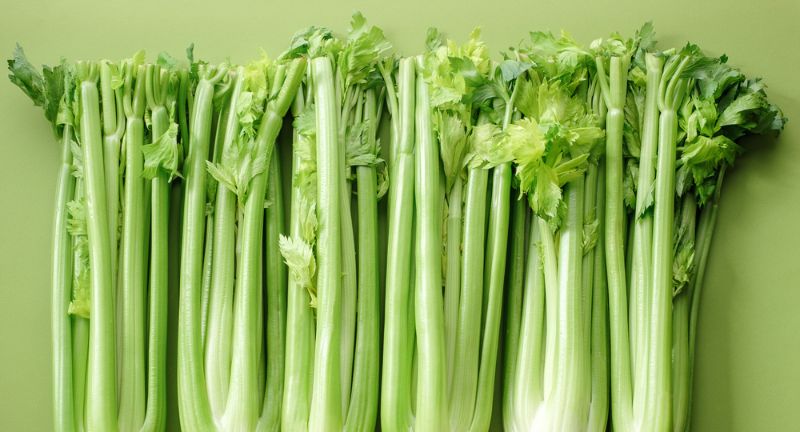
Shutterstock
Celery is a hydrating and low-calorie vegetable, packed with potassium to support electrolyte balance. Its crisp texture and mild flavor make it a versatile snack or addition to soups and stews. Celery is also rich in antioxidants that help reduce inflammation and support heart health. Adding celery to your meals is an easy way to enhance nutrition while keeping calories in check.
Fennel Greens
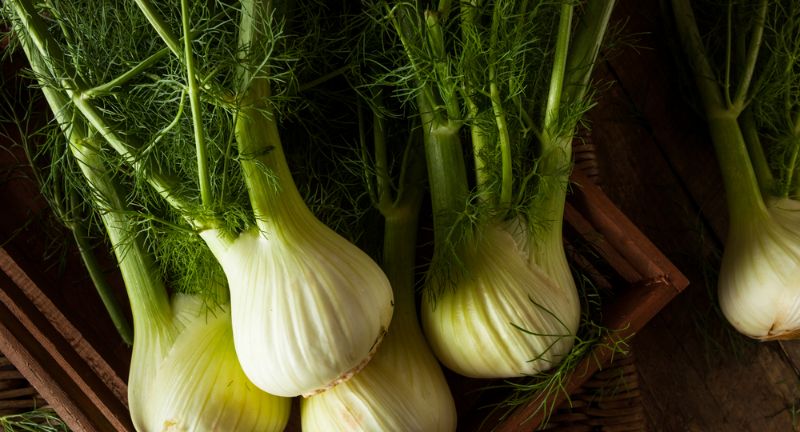
Shutterstock
Fennel greens, or fronds, have a mild licorice flavor and are a unique addition to salads, soups, and garnishes. Rich in antioxidants and dietary fiber, they support digestion and overall health. These delicate greens complement seafood dishes and roasted vegetables with their aromatic quality. Adding fennel greens to your cooking introduces a sophisticated flavor and boosts nutritional value.
Leeks
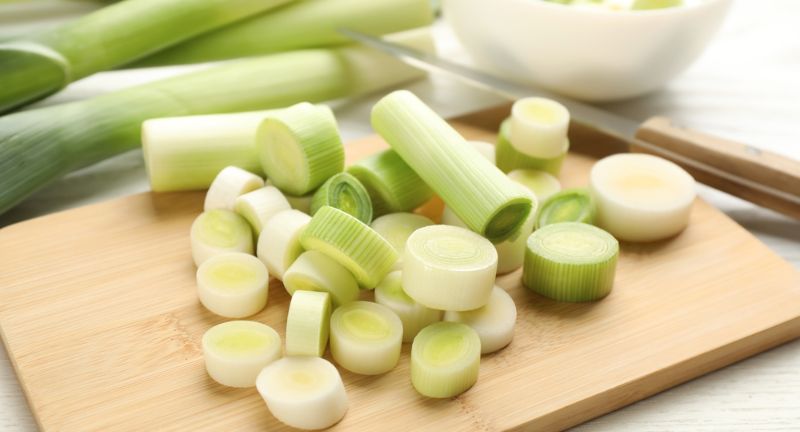
Shutterstock
Leeks offer a mild onion flavor and are high in vitamins A and C, supporting vision and immunity. Their subtle sweetness pairs well with soups, casseroles, and sautéed dishes. Leeks are also a source of prebiotics, which promote gut health by feeding beneficial bacteria. Including leeks in your recipes adds both flavor and valuable nutrients to your meals.
Green Beans
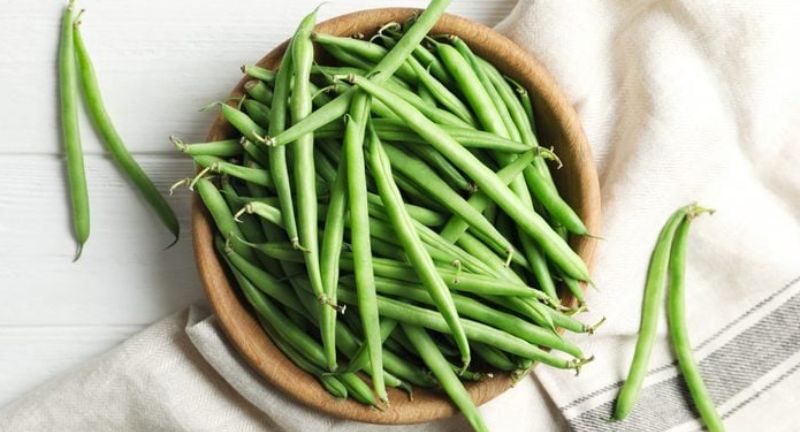
Getty
Green beans are a great source of fiber and vitamin C, promoting healthy digestion and a strong immune system. Their crisp texture and mild taste make them a popular side dish, whether steamed, roasted, or added to casseroles. Green beans are also low in calories, making them an excellent choice for weight management. Incorporating green beans into your diet helps you enjoy a balance of flavor and nutrition.
Peas

Shutterstock
Peas are rich in protein, vitamin K, and dietary fiber, contributing to bone health and improved digestion. Their natural sweetness enhances dishes like risottos, soups, and salads. Peas also contain antioxidants that help reduce inflammation and protect against chronic diseases. Adding peas to your meals provides a burst of flavor along with valuable nutrients.
Zucchini
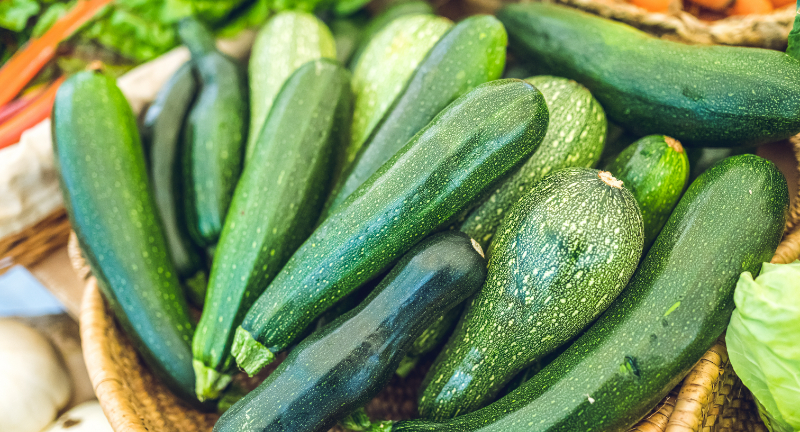
Shutterstock
Zucchini is a low-calorie vegetable high in vitamin A, which supports eye health and immune function. Its mild flavor and soft texture make it a versatile ingredient for sautéing, grilling, or baking. Zucchini noodles, or “zoodles,” are a popular low-carb alternative to pasta. Including zucchini in your diet helps you enjoy healthy, satisfying meals without excess calories.
Cucumber

Shutterstock
Cucumber is a hydrating vegetable, perfect for hot weather and maintaining skin health. Rich in water and antioxidants, it helps detoxify the body and reduce inflammation. Sliced cucumbers add freshness to salads, sandwiches, and infused water. Adding cucumbers to your meals provides a refreshing crunch and contributes to overall hydration.
Okra

Shutterstock
Okra is a nutrient-dense vegetable high in fiber and antioxidants, supporting gut health and reducing inflammation. Its slightly slimy texture becomes a natural thickener for soups and stews. Okra is also rich in vitamins C and K, which promote immunity and bone health. Incorporating okra into your diet introduces unique flavors and valuable nutrients.
Asparagus

Shutterstock
Asparagus is a tender vegetable packed with folate and vitamin K, essential for cell growth and bone health. Its delicate flavor shines when roasted, grilled, or steamed with minimal seasoning. Asparagus is also a natural diuretic, helping to reduce bloating and support kidney health. Adding asparagus to your meals provides a touch of elegance and a boost of nutrients.
Conclusion
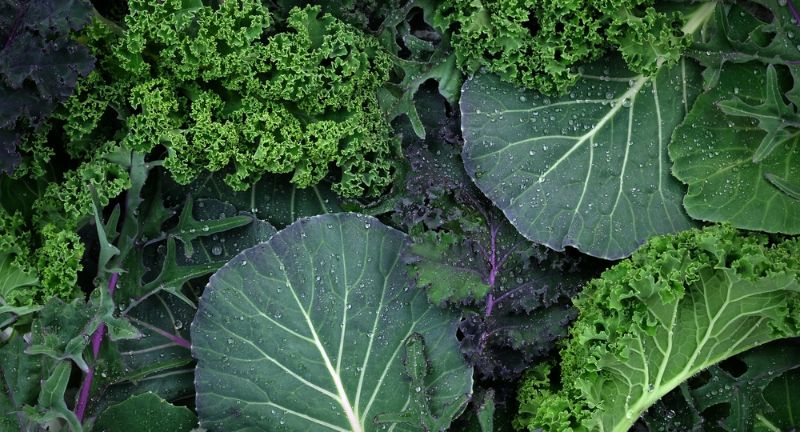
Shutterstock
Incorporating a variety of green vegetables into your diet is a simple yet powerful way to improve your overall health. These nutrient-packed foods offer endless culinary possibilities, from fresh salads to hearty sautés and smoothies. By eating more greens, you can support your immune system, enhance digestion, and even promote healthy skin. Make green vegetables a daily staple and experience their transformative benefits. Let this guide inspire you to embrace the vibrant, delicious, and nourishing world of greens.
Related Topics:

More From Lifestylogy
-


Why Video Games Are Not Actually Bad
-


27 Habits To Implement That Could Change Your Life For…
-


29 Foods Your Dentist Wishes You Would Stay Away From
-


28 Foods That Are Considered To Be Cold And Flu…
-


Relatable Wedding Moments We Know Too Well
-


26 Foods That Are High In Gallic Acid And Why…
-


Why You Should Only Burn One Type Of Candle
-


Why Grapes Are One Of The Best Fruits
-


27 Books That Everyone Should Read At Least Once In…